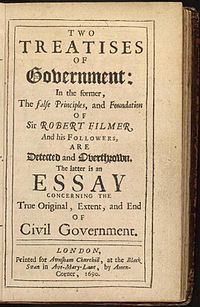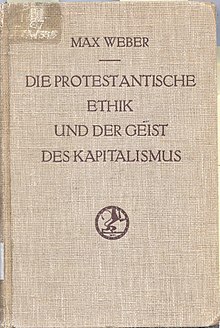A right to property is recognised in Article 17 of the Universal Declaration of Human Rights, but it is not recognised in the International Covenant on Civil and Political Rights or the International Covenant on Economic, Social and Cultural Rights. The European Convention on Human Rights, in Protocol 1, article 1 acknowledges a right for natural and legal persons to "peaceful enjoyment of his possessions", subject to the "general interest or to secure the payment of taxes".
Definition
The
right to property is one of the most controversial human rights, both
in terms of its existence and interpretation. The controversy about the
definition of the right meant that it was not included in the International Covenant on Civil and Political Rights or the International Covenant on Economic, Social and Cultural Rights.
Controversy centres upon who is deemed to have property rights
protected (e.g. human beings or also corporations), the type of property
which is protected (property used for the purpose of consumption or
production) and the reasons for which property can be restricted (for
instance, for regulations, taxation or nationalisation in the public
interest). In all human rights instruments, either implicit or express
restrictions exist on the extent to which property is protected. Article
17 of the Universal Declaration of Human Rights (UDHR) enshrines the right to property as follows:
| “ | (1) Everyone has the right to own property alone as well as in association with others. (2) No one shall be arbitrarily deprived of his property. | ” |
The object of the right to property as it is usually understood
nowadays consists of property already owned or possessed, or of property
acquired or to be acquired by a person through lawful means. Not in
opposition but in contrast to this, some proposals also defend a
universal right to private property, in the sense of a right of every
person to effectively receive a certain amount of property, grounded in a
claim to Earth's natural resources or other theories of justice.
Africa
The African Charter on Human and Peoples' Rights (ACHPR) protects the right to property most explicitly in Article 14, stating:
| “ | The right to property shall be guaranteed. It may only be encroached upon in the interest of public need or in the general interest of the community and in accordance with the provisions of appropriate laws. | ” |
Property rights are furthermore recognised in Article 13 of the
ACHPR, which states that every citizen has the right to participate
freely in the government of his country, the right to equal access to
public services and "the right of access to public property and services
in strict equality of all persons before the law". Article 21 of the
ACHPR recognises the right of all peoples to freely dispose of their
wealth and natural resources and that this right shall be exercised in
the exclusive interest of the people, who may not be deprived of this
right. Article 21 also provides that "in case of spoliation the
dispossessed people shall have the right to the lawful recovery of its
property as well as to adequate compensation".
Americas
When the text of the UDHR was negotiated, other states in the
Americas argued that the right to property should be limited to the
protection of private property necessary for subsistence. Their suggestion was opposed, but was enshrined in the American Declaration of the Rights and Duties of Man, which was negotiated at the same time and adopted one year before the UDHR in 1948. Article 23 of the declaration states:
| “ | Every Person has the right to own such private property as meets the essential needs of decent living and helps to maintain the dignity of the individual and of the home. | ” |
The definition of the right to property is heavily influenced by
Western concepts of property rights, but because property rights vary
considerably in different legal systems it has not been possible to
establish international standards on property rights.
The regional human rights instruments of Europe, Africa and the
Americas recognise the right to protection of property to varying
degrees.
The American Convention on Human Rights
(ACHR) recognises the right to protection of property, including the
right to "just compensation". The ACHR also prohibits usury and other
exploitation, which is unique amongst human rights instruments. Article 21 of the ACHR states:
| “ |
(1)
Everyone has the right to the use and enjoyment of his property. The law
may subordinate such use and enjoyment to the interest of society.
(2) No one shall be deprived of his property except upon payment of
just compensation, for reasons of public utility or social interest, and
in the cases and according to the forms established by law.
(3) Usury and any other form of exploitation of man by man shall be
prohibited by law.
|
” |
Europe
After failed attempts to include the right to protection of property in the European Convention on Human Rights
(ECHR), European states enshrined the right to protection of property
in Article 1 of Protocol I to the ECHR as the "right to peaceful
enjoyment of possessions", where the right to protection of property is defined as such:
| “ | (1) Every natural or legal person is entitled to the peaceful enjoyment of his possessions. No one shall be deprived of his possessions except in the public interest and subject to the conditions provided for by law and by the general principles of international law. (2) The preceding provisions shall not, however, in any way impair the right of a State to enforce such laws as it deems necessary to control the use of property in accordance with the general interest or to secure the payment of taxes or other contributions or penalties. | ” |
Therefore European human rights law recognises the right to peaceful
enjoyment of property, makes deprivation of possessions subject to
certain conditions and recognises that states can balance the right to
peaceful possession of property against the public interest. The European Court of Human Rights
has interpreted "possessions" to include not only tangible property,
but also economic interests, contractual agreements with economic value,
compensation claims against the state and public law related claims
such as pensions.
The European Court of Human Rights has held that the right to property
is not absolute and states have a wide degree of discretion to limit
the rights. As such, the right to property is regarded as a more
flexible right than other human rights. States' degree of discretion is
defined in Handyside v. United Kingdom, heard by the European
Court of Human Rights in 1976. Notable cases where the European Court of
Human Rights has found the right to property having been violated
include Sporrong and Lonnroth v. Sweden, heard in 1982, where Swedish law kept property under the threat of expropriation for an extended period of time.
The highest economic compensation following a judgment of the
Strasbourg Court on this matter was given (1,3 million euro) in case Beyeler v. Italy.
International conventions
Property rights are also recognised in the International Convention on the Elimination of All Forms of Racial Discrimination which states in Article 5 that everyone has the right to equality before the law
without distinction as to race, colour and national or ethnic origin,
including the "right to own property alone as well as in association
with others" and "the right to inherit". The Convention on the Elimination of All Forms of Discrimination against Women
recognises the property rights in Article 16, which establishes the
same right for both spouses to ownership, acquisition, management,
administration, enjoyment and disposition of property and Article 15,
which establishes women’s' right to conclude contracts.
Property rights are also enshrined in the Convention relating to the Status of Refugees and the Convention on the Protection of the Rights of All Migrant Workers and Members of Their Families.
These international human rights instruments for minorities do not
establish a separate right to property, but prohibit discrimination in
relation to property rights where such rights are guaranteed.
Relationship to other rights
The
right to private property was a crucial demand in early quests for
political freedom and equality and against feudal control of property.
Property can serve as the basis for the entitlements that ensure the
realisation of the right to an adequate standard of living and it was only property owners which were initially granted civil and political rights, such as the right to vote. Because not everybody is a property owner, the right to work was enshrined to allow everybody to attain an adequate standard of living.
Today, discrimination on the basis of property ownership is commonly
seen as a serious threat to the equal enjoyment of human rights by all
and non-discrimination clauses in international human rights instruments frequently include property as a ground on the basis of which discrimination is prohibited (see the right to equality before the law). The protection of private property may come into conflict with economic, social and cultural rights and civil and political rights, such as the right to freedom of expression.
To mitigate this the right to property is commonly limited to protect
the public interest. Many states also maintain systems of communal and
collective ownership. Property rights have frequently been regarded as
preventing the realisation of human rights for all, through for example
slavery and the exploitation of others. Unequal distribution of wealth
often follows line of sex, race and minorities, therefore property
rights may appear to be part of the problem, rather than as an interest
that merits protection. Property rights have been at the centre of
recent human rights debates on land reform, the return of cultural
artifacts by collectors and museums to indigenous peoples and the
popular sovereignty of peoples over natural resources.
History
In Europe, the notion of private property and property rights emerged in the Renaissance as international trade by merchants gave rise to mercantilist ideas. In 16th-century Europe, Lutheranism and the Protestant Reformation advanced property rights using biblical terminology. The Protestant work ethic and views on man's destiny came to underline social views in emerging capitalist economies in early modern Europe. The right to private property emerged as a radical demand for human rights vis-a-vis
the state in 17th-century revolutionary Europe, but in the 18th and
19th centuries the right to property as a human right became subject of
intense controversy.
English Civil War
The arguments advanced by the Levellers during the English Civil War on property and civil and political rights, such as the right to vote, informed subsequent debates in other countries.
The Levellers emerged as a political movement in mid-17th century
England in the aftermath of the Protestant Reformation. They believed
that property which had been earned as the fruit of one's labour was
sacred under the Bible's commandment
"thou shall not steal". As such, they believed that the right to
acquire property from one's work was sacred. Levellers' views on the
right to property and the right not to be deprived of property as a
civil and political right were developed by the pamphleteer Richard Overton. In "An Arrow against all Tyrants" (1646), Overton argued:
To every individual in nature is given an individual property by nature not to be invaded or usurped by any. For everyone, as he is himself, so he has a self propertiety, else he could not be himself; and of this no second may presume to deprive of without manifest violation and affront to the very principles of nature of the rules of equity and justice between man and man. Mine and thine cannot be, except this. No man has power over my rights and liberties, and I over no man.
The views of the Levellers, who enjoyed support amongst small-scale
property-owners and craftsmen, were not shared by all revolutionary
parties of the English Civil War. At the 1647 General Council, Oliver Cromwell and Henry Ireton argued against equating the right to life
with the right to property. They argued that doing so would establish
the right to take anything that one may want, irrespective of the rights
of others. The Leveller Thomas Rainborough responded, relying on Overton's arguments, that the Levellers required respect for others' natural rights.
The definition of property and whether it was acquired as the fruit of
one's labour and as such a natural right was subject to intense debate
because the right to vote depended on property ownership. Political
freedom was at the time associated with property ownership and
individual independence. Cromwell and Ireton maintained that only
property in freehold land or chartered trading rights
gave a man the right to vote. They argued that this type of property
ownership constituted a "take in society", which entitles men to
political power. In contrast, Levellers argued that all men who are not
servants, alms-recipients or beggars should be considered as property
owners and be given voting rights. They believed that political freedom
could only be secured by individuals, such as craftsmen, engaging in
independent economic activity.
Levellers were primarily concerned with the civil and political rights of small-scale property owners and workers, whereas the Diggers, a smaller revolutionary group led by Gerard Winstanley, focused on the rights of the rural poor who worked on landed property.
The Diggers argued that private property was not consistent with
justice and that the land that had been confiscated from the Crown and
Church should be turned into communal land to be cultivated by the poor.
According to the Diggers, the right to vote should be extended to all
and everybody had the right to an adequate standard of living. With the Restoration of the English monarchy
in 1660, all confiscated land returned to the Crown and Church. Some
property rights were recognised and limited voting rights were
established. The ideas of the Levellers on property and civil and
political rights remained influential and were advanced in the
subsequent 1688 Glorious Revolution,
but restrictions on the right to vote based on property meant that only
a fraction of the British population had the suffrage. In 1780 only
214,000 property-owning men were entitled to vote in England and Wales,
less than 3 percent of the population of 8 million. The Reform Act 1832
restricted the right to vote to men who owned property with an annual
value of £10, giving approximately 4 percent of the adult male
population the right to vote. The reforms of 1867 extended the right to
vote to approximately 8 percent. The working class (which increased
dramatically with the Industrial Revolution) and industrialists remained
effectively excluded from the political system.
John Locke and the American and French Revolutions
John Locke's 1689 Two Treatises of Government in which Locke calls "lives, liberties and estates" the "property" of individuals
The English philosopher John Locke (1632–1704) developed the ideas of property, civil and political rights further. In his Second Treatise on Civil Government
(1689), Locke proclaimed that "everyman has a property in his person;
this nobody has a right to but himself. The labor of his body and the
work of his hand, we may say, are properly his".
He argued that property ownership derives from one's labor, though
those who do not own property and only have their labor to sell should
not be given the same political power as those who owned property.
Labourers, small-scale property owners and large-scale property owners
should have civil and political rights in proportion to the property
they owned. According to Locke, the right to property and the right to
life were inalienable rights and that it was the duty of the state to
secure these rights for individuals. Locke argued that the safeguarding
of natural rights, such as the right to property, along with the
separation of powers and other checks and balances, would help to
curtail political abuses by the state.
Locke's labor theory of property and the separation of powers greatly influenced the American Revolution and the French Revolution.
The entitlement to civil and political rights, such as the right to
vote, was tied to the question of property in both revolutions. American
revolutionaries, such as Benjamin Franklin and Thomas Jefferson, opposed universal suffrage, advocating votes only for those who owned a "stake" in society. James Madison
argued that extending the right to vote to all could lead in the right
to property and justice being "overruled by a majority without
property". While it was initially suggested
to establish the right to vote for all men, eventually the right to
vote in the nascent United States was extended to white men who owned a
specified amount of real estate and personal property. French
revolutionaries recognised property rights in Article 17 of the Declaration of the Rights of Man and of the Citizen
(1791), which stated that no one "may be deprived of property rights
unless a legally established public necessity required it and upon
condition of a just and previous indemnity". Articles 3 and 6 declared
that "all citizens have the right to contribute personally or through
their representatives" in the political system and that "all citizens
being equal before [the law], are equally admissible to all public
offices, positions and employment according to their capacity, and
without other distinction than that of virtues and talents". However, in
practice the French revolutionaries did not extend civil and political
rights to all, although the property qualification required for such
rights was lower than that established by the American revolutionaries.
According to the French revolutionary Abbé Sieyès,
"all the inhabitants of a country should enjoy the right of a passive
citizen... but those alone who contribute to the public establishment
are like the true shareholders in the great social enterprise. They
alone are the true active citizens, the true members of the
association". Three months after the Declaration had been adopted, domestic servants,
women and those who did not pay taxes equal to three days of labor were
declared "passive citizens". Sieyes wanted to see the rapid expansion
of commercial activities and favoured the unrestricted accumulation of
property. In contrast, Maximilien Robespierre
warned that the free accumulation of wealth ought to be limited and
that the right to property should not be permitted to violate the rights
of others, particularly poorer citizens, including the working poor and
peasants. Robespierre's views were eventually excluded from the French Constitution of 1793 and a property qualification for civil and political rights was maintained.



